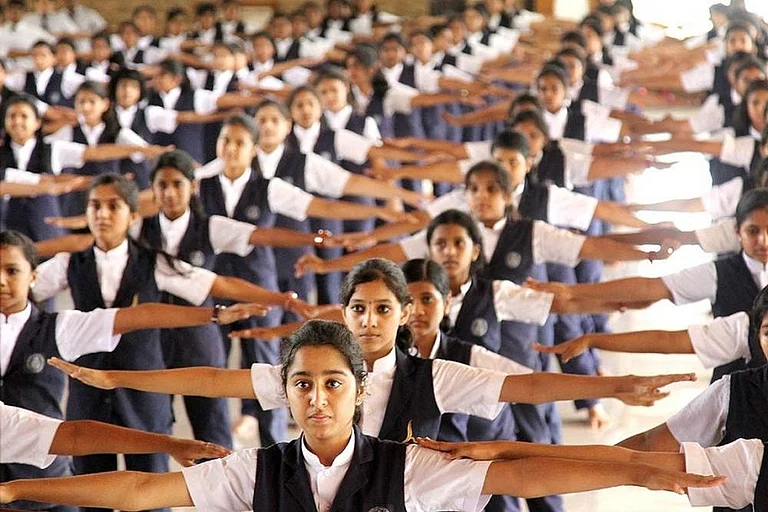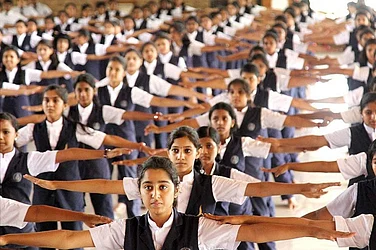Students, who have not studied physics, mathematics or chemistry in class 12, may also aspire to become an engineer from this year.
The All India Council for Technical Education (AICTE) has revised its regulations to enable students from “diverse background” to study engineering if they want.
In its revised rules, the technical regulator has given a list of 14 subjects — physics, mathematics, chemistry, computer science, electronics, information technology, biology, informatics practices, biotechnology, technical vocational subject, engineering graphics, business studies, entrepreneurship.
Students need to pass in any three subjects (from the list) with a minimum of 45 per cent marks in the class 12 board exam to be able to apply for admission in undergraduate courses in engineering, according to the revised rules of the AICTE.
“Universities will offer suitable bridge courses such as mathematics, physics, engineering drawing, etc for the students coming from diverse backgrounds to achieve desired learning outcome of the programme,” the AICTE provides in the Approval Process Handbook 2021-22.
The technical education regulator has opened up engineering courses for students coming from “diverse backgrounds” aligning its regulations with the National Education Policy (NEP) 2020, which stipulates that there should not be any hard separations between the arts, sciences, commerce and vocational education. Students will be given increased flexibility and choice of subjects to study, “particularly in secondary school” so that they can design their paths of study and life plans, the NEP provides.
“We have aligned our regulations with the NEP keeping the future in mind. This will enable a student of commerce background, for example, pursue engineering if he wants, provided he or she has passed in any three of 14 subjects listed in the rules (with a minimum 45 per cent marks),” AICTE vice-chairman M.P. Poonia told Outlook.
At present, the study of physics, chemistry and mathematics is mandatory for class 12 students of the science stream to be able to apply for admission in undergraduate engineering courses. Engineering colleges admit students based on their scores in the entrance examination and their class 12 board exam scores in the three subjects.
Students have to appear for physics, chemistry and mathematics papers in the Joint Entrance Examination (JEE), conducted in two parts for admission to undergraduate engineering courses offered by the Indian Institutes of Technology (IITs), National Institutes of Technology (NITs) and other technical institutes.
“There are many universities, which offer engineering courses, have their admission policy. They either conduct entrance test or admit students based on their scores in the class 12 board exam. They can now enrol students from diverse backgrounds as well,” Poonia said.
The JEE exam syllabus may also change in future, he speculated.


















_21.png?w=200&auto=format%2Ccompress&fit=max)


.jpg?w=200&auto=format%2Ccompress&fit=max)



